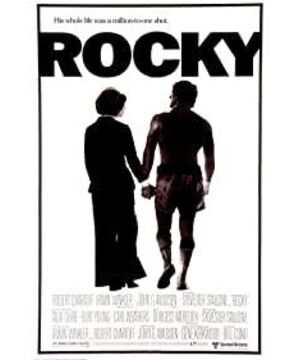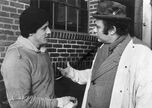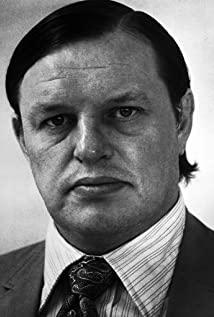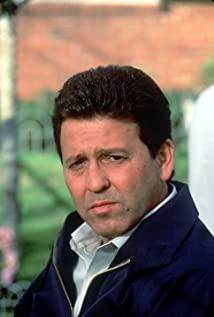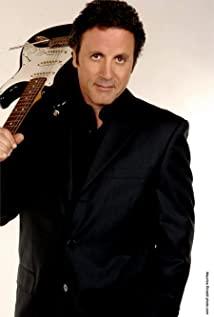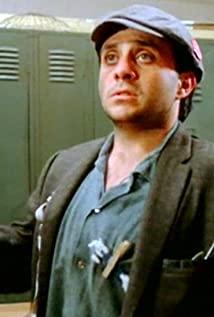At the beginning of the film, the huge Jesus statue looks directly at the camera, and then pulls down, we see that Rocky is playing against his opponent. At the beginning, Rocky has been in a passive state. After the break, Rocky turned the tide and won the game with an all-out attack. We often say the opening set the tone, and this game seemed to imply to the audience that Rocky was a man who turned the corner.
After the game, Rocky went home and greeted the puppy on the way. After returning home, he spoke to his pet, the turtle, to himself, and then came to the mirror. Pick up pictures of yourself as a child. go to bed. The next morning, Rocky went to the pet shop again and had his first interaction with the bulldog—they knew each other very well. Then he went to collect debts for loan sharks...
A series of actions one day after the game fully presented Rocky's daily life, and also gave the audience two very strong hints:
1. The contrast between turtles and dogs: whether this is true After telling us, Rocky always wanted a bulldog (a symbol of strength), but got two turtles (a symbol of gentleness, leniency, and non-aggression);
2. His own decadence in the lens and his childhood in the photo The high-spirited contrast vaguely revealed Rocky's unwillingness.
As for this, the film basically completed the character explanation in Hollywood's classic narrative mode, and also paved the way for the arc of the basic characters. The completion of a series of actions just fell within 30 minutes.
After the opening action was completed, the conflict was created immediately - the world champion was going to fight Rocky, and this information was conveyed through the omniscient point of view, which meant that Rocky had not yet learned of the matter, which gave Rocky had enough time to develop a relationship with Ellie, which paved the way for Rocky's character movement later. The advantage of showing contradictions from an omniscient viewpoint is that it allows the audience to know the contradictions in advance, creating expectations and giving a buffer zone, rather than being as hasty as the characters get news; the disadvantage is that as a biographical film that often takes the first person as the narrative perspective , and doing so would create a disjointed narrative perspective. Before being told to fight, Rocky completed the establishment of relationship with Ellie (kissing), and the conflict with the gym owner/coach materialized - the two had an argument, the boss believed that Rocky wasted his talent - two This action also completed the establishment of the relationship between the two groups of characters.
Therefore, after being told about the game, the following narrative logically used the relationship between the two groups of characters:
1. When watching TV at his girlfriend's house, Pauli thought that Rocky was acting like a fool in front of the TV camera. Qitong Ellie expressed her true thoughts: "Did I tell you that I don't mind what's on TV? Actually, I do." This is not only a concrete manifestation of her inner distress (as compared to looking in the mirror before) Echoing), and it is a hint - he is going to tell his girlfriend that he doesn't want to, and to prove to her that he is going to change;
2. Resolving the conflict with the boss/coach: the boss came to Rocky in the middle of the night, He hoped to be his coach, but Rocky seemed very unhappy. Through his "confession" when he yelled at the boss through the door in the room, we learned that it seemed that Rocky didn't want to waste his talent and replace it. People charge usury, but the boss delays and bury him, not because he doesn't want to be a "dog", but forced to become a "turtle". And, after the outburst, Rocky chose to forgive and reconcile.
With the foreshadowing of the transformation in 1 (inner demand change) and the resolution of the conflict in 2 (external transformation - physical, technical perfection), Rocky is ready to go, and he starts to get up at 4 in the morning to train his fitness. Here, the film begins to build another arc - when running to the last ancient building, Rocky suffered from physical insufficiency and stagnation, and in the picture space at this time, the audience and Rocky shared a Philadelphia, which is still in the dim light, is another model of sports inspirational film "Everything is difficult at the beginning", so there is room for growth. When Rocky returned home, he found that Ellie had bought a bulldog from the pet store for him, which was a very obvious hint that Rocky was about to change from a "turtle" to a "dog".
Later, the TV station conducted a live interview with Rocky. This interview was seen by Apollo's coach/assistant. He told Apollo that Rocky "seems to be serious", and the voiceover revealed that the latter replied "I don't care. Seriously too” — when he was actually thinking about how to increase his media exposure. In Hollywood genre films, the presence of such passages often implies that the actor will suffer the consequences of his contemptuous arrogance. Coupled with the following series of montages of Rocky's training, the soundtrack also changed from the previous melancholy and became lively and upward. Accompanied by the exciting music, the Rocky in the picture changed from jogging to sprinting. After rushing up the stairs where the ancient building scene had appeared before, Rocky looked at Philadelphia under the red sun in the east and raised his arms and shouted, which was different from the first. There was a huge contrast in this training, which was a strong omen for the audience - Rocky would win in the end.
Finally, in the finals, Apollo appeared in a very arrogant and high-profile way, plus all the hints given before - the satisfaction of the pattern that echoes the beginning and the end of the viewing habits; the arousing of Rocky's fighting spirit; the sharply contrasting training paragraphs; There is no good ending model for the people of the first generation-everything seems to indicate that Rocky will win the final victory.
But in the end, Rocky lost the game, and in this long-lasting stalemate, the arrogant Apollo still won. The director continued to strengthen the audience's expectations through a series of foreshadowing, hints, and comparisons, and accumulated emotions, but in the end, he released all the audience's pigeons - the expected victory did not appear.
Having said that, all this seems to be no longer important, because in his confession to his girlfriend before the game, he said that as long as he can survive to the end, he is already a winner, and he can prove to the world that he is not a waste. So, in the final game, in a panoramic shot, the two fought under the gaze of Rocky's huge poster. This is a kind of rebellion against the statue of Jesus at the beginning - I am the final decider and control of my own destiny. By. Therefore, after the game, the lamenting Rocky was not under the camera, nor did the voice-over cheers after the announcement of the game result become a contrast to the loss, but instead became Rocky's inner externalization. He has completed his self. To achieve, to the world, to his girlfriend, and most importantly, to prove to himself that he is not a waste.
The film constructs the film through the use of traditional Hollywood narrative strategies, and finally rebels against it, sublimating the theme: sportsmanship is not reflected in winning or losing the game, and self-realization is not in winning or losing. The process of embodying the essential power of human beings is the essence of sports competition and the real self-realization.
View more about Rocky reviews


